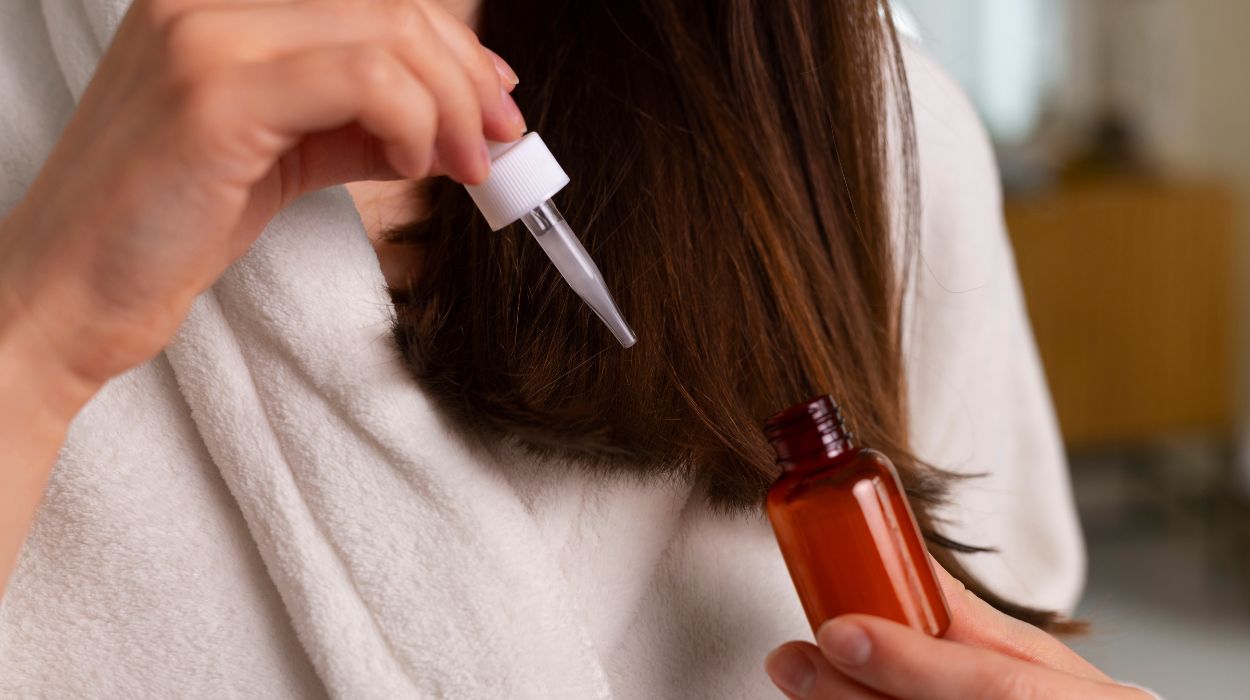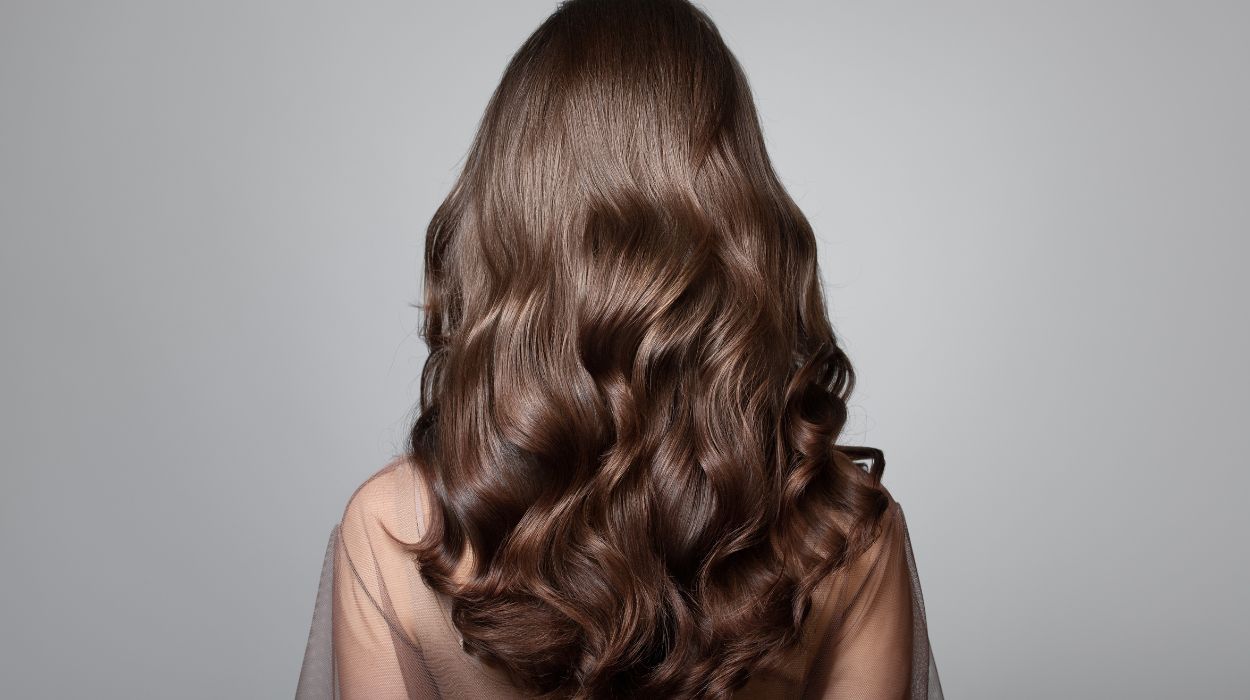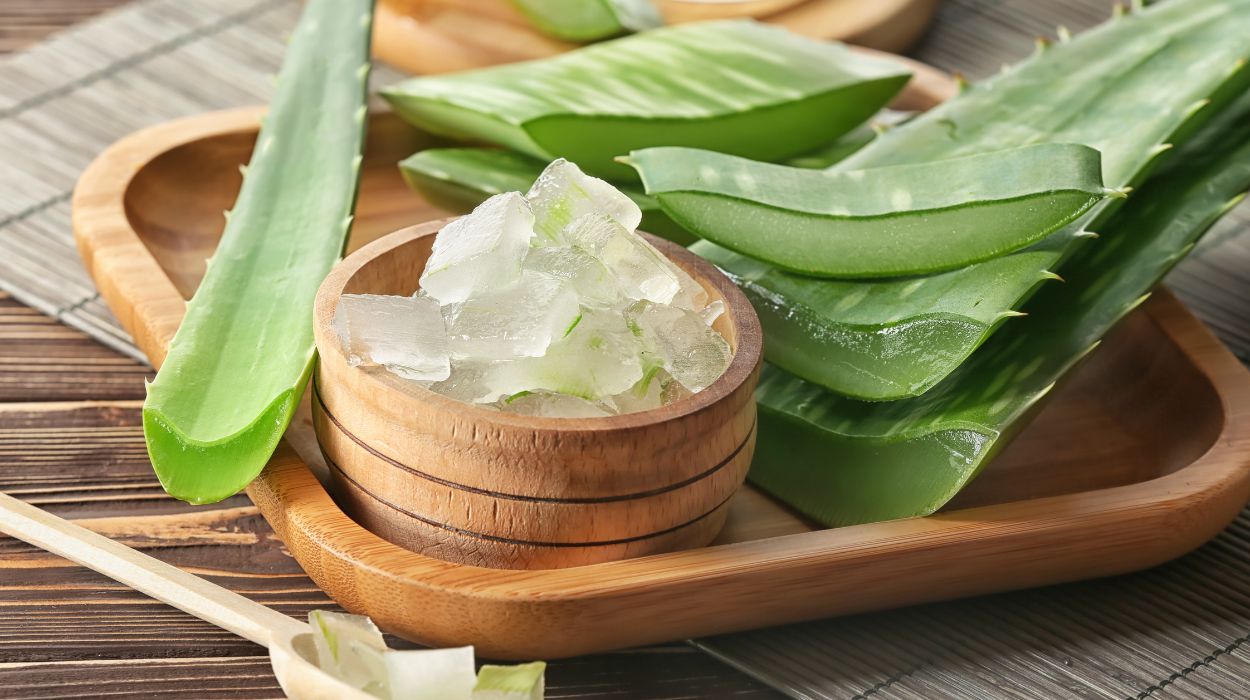 Expert's opinion
Expert's opinion
Expert's opinion
The article is a subjective view on this topic written by writers specializing in medical writing.
It may reflect on a personal journey surrounding struggles with an illness or medical condition, involve product comparisons, diet considerations, or other health-related opinions.
Although the view is entirely that of the writer, it is based on academic experiences and scientific research they have conducted; it is fact-checked by a team of degreed medical experts, and validated by sources attached to the article.
The numbers in parenthesis (1,2,3) will take you to clickable links to related scientific papers.
Glycerin For Hair: Benefits, Side Effects & Ways To Use In 2024

Glycerin, a clear, odorless, and viscous liquid, is a natural humectant used in the cosmetic and pharmaceutical industries for decades. It is derived from plant or animal sources and is vital in attracting and retaining moisture. This makes it an ideal candidate for hair loss products.
It’s no secret that achieving healthy, stunning locks is a top priority for many of us, and glycerin might just be the game-changer you’ve been searching for. This article will explore the ins and outs of glycerin.
Introducing a new ingredient to your hair care routine can be daunting, so we’re here to help. Is glycerin good for your hair? Through our in-depth exploration, we’ll be shedding light on the numerous benefits glycerine offers for different hair types, any potential side effects to be aware of, and, of course, the most effective ways to use this miraculous ingredient in your daily regimen.
Key Takeaways
- Glycerin is a natural liquid that’s colorless, tasteless, and odorless.
- Here are some types of glycerin for your hair: Vegetable glycerin, pharmaceutical-grade glycerin, and pood-grade glycerin.
- Some benefits of using glycerine for hair include hydration, frizz control, split-end prevention, soothe and moisturize your scalp, etc.
- You have various options for using glycerin for hair: mix glycerin with water, use it with aloe vera, make a hair mask, and use glycerin in your regular hair products.
- The Cosmetic Ingredient Review Expert Panel has shown no adverse effects to the use of glycerin.
- Read more about other hair care tips.
What Is Glycerin For Hair?
Glycerin, also known as glycerol,[1] is a natural liquid that’s colorless, tasteless, and odorless. It is a Food and Drug Administration-approved product[2] used in fermented foods and beverages like honey, beer, wine, and vinegar. This wonder ingredient is more than just a sweetener or flavor enhancer. It also has some pretty impressive hair health benefits.
Studies have shown that glycerin solution has bactericidal and antiviral effects[3] and can even help reduce wound inflammation after a few hours. So, glycerin is a versatile ingredient in the beauty world and has some serious medicinal benefits. No wonder it’s become so popular in hair care products, from a glycerin hair mask to a hair spray; the uses never run out!
What Type Of Glycerin Is Good For Hair?
When choosing glycerin for haircare, selecting a high-quality product that is safe and effective for your hair is essential. Remember that there is a difference between synthetic glycerin, which contains petroleum, and naturally derived glycerin, created from fats and oils. Here are some types for your hair:
- Vegetable glycerin: Vegetable glycerin is a natural, plant-based glycerin derived from vegetable oils. Vegetable glycerin for hair is an excellent option for hair care as it is gentle, moisturizing, and non-toxic, safe for wet or dry hair.
- Pharmaceutical-grade glycerin: Pharmaceutical-grade glycerin is a high-quality, purified animal-derived glycerin used in pharmaceutical and cosmetic products. It is safe and effective for use on the hair and scalp. It is particularly beneficial for dry and damaged hair.
- Food-grade glycerin: Food-grade glycerin is a sugar alcohol used in food products as a sweetener or humectant. It is safe and non-toxic for use on the hair.
Is Glycerin Good For Hair?
Yes, glycerin is good for hair. It is a natural humectant that is often used in hair care products because of its ability to attract and retain moisture. It can help to moisturize and lubricate the hair deeply, improving its health and appearance.
Benefits Of Glycerin For Hair

Do you often ask, “What does glycerin do for hair?” It has some fantastic benefits. Here are some benefits of using glycerin in hair products
- Hydration: Glycerin is a humectant, which means it attracts moisture from the air and locks it into your hair. This can help keep your hair hydrated,[4] soft, and healthy. Apply it to damp hair and let it dry.
- Frizz control: By retaining moisture, glycerin also helps to reduce frizz, making your hair look smoother and more manageable. Use a glycerin hair spray to tame the frizz before styling if the weather is not humid.
- Split-end prevention: Glycerin coats the hair shaft, reducing the appearance of split ends and helps protect your hair from further damage.
- Scalp health: Glycerin can soothe and moisturize your scalp, helping to reduce dandruff[5] and itchy scalp. It can be used as a leave-in treatment for its anti-irritant properties.
- Enhances curl definition: If you have curly hair, glycerin can help improve your curl pattern and make your curls more defined and bouncy.
- Increases hair strength: Glycerin can help improve the elasticity of your hair, making hair strands less prone to hair breakage.
- Adds shine: Glycerin can also add shine to the hair by reflecting light off the hair’s surface. This can result in hair that looks healthy and vibrant.
- Promotes hair growth: Glycerin can also help promote your hair’s growth by improving the health of the hair and scalp. It can help strengthen the hair follicles and prevent hair breakage, leading to healthier, stronger hair.
How To Use Glycerin For Hair Growth
There are multiple ways to incorporate glycerin into your hair care routine.[6] Luckily, glycerine works well with other products, so you have various options. Here is how to use glycerin for hair growth;
Mix Glycerin With Water
Mix equal parts of glycerine and water in a spray bottle and apply it to your scalp and hair. Gently massage it onto your scalp for a few minutes and leave it on for 30 minutes to an hour before rinsing it off with lukewarm water. Do this once a week to moisturize hair.
Use Glycerin With Aloe Vera

Aloe vera works well with glycerine in hair products. You can mix one tablespoon of glycerin with two tablespoons of fresh aloe vera gel and apply it to your scalp and hair. Gently massage it onto your scalp and leave it on for 30 minutes to an hour before rinsing it off with lukewarm water.
Aloe vera contains enzymes that promote hair growth,[7] and glycerin has moisturizing properties that help to strengthen brittle hair. Treat your hair with these once a week.
Make A Hair Mask With Glycerin
Mix two tablespoons of glycerin with one egg yolk and one tablespoon of olive oil. Apply this mixture to your hair and scalp, massage it in, and leave it on for 30 minutes to an hour before rinsing it off with lukewarm water. The protein in the egg yolk helps to strengthen the hair, and the olive oil and glycerine help moisturize it. Do this once a week.
Use In Your Regular Hair Care Products
You can also add a few drops of glycerin to your shampoo or conditioner. You can apply it before using your hair growth devices. This can help improve your hair’s moisture levels and promote healthy growth.
Side Effects Of Glycerine On Hair
You might be wondering about glycerine on hair side effects. Is glycerin bad for hair? According to studies, no, it is not. Research by The Cosmetic Ingredient Review Expert Panel has shown no adverse effects to the use of glycerin.[8]
The panel reviewed all available data on glycerin use in cosmetics. It determined it is safe for use at the recommended concentrations and practices described in the safety assessment.
However, there are exceptions to this. One of the main side effects of glycerine on hair is that it can cause frizz in humid conditions. This is because glycerine is a humectant that may draw moisture from the air to the hair. High humidity can cause the glycerin hair to become over-moisturized and lead to frizz.
Another possible side effect of glycerine on hair is that it can make it feel sticky or tacky. This is especially true if the glycerine concentration in a hair product is too high or if it is not rinsed out properly.
Glycerine can also cause build-up on the hair over time, leading to a dull, weighed-down appearance. This is because glycerine is not easily removed from the hair, so it can accumulate with repeated use. Lastly, some people may be allergic to glycerine and can experience itching, redness, or swelling on the scalp or skin around the hairline.
Other Hair Care Tips
Taking care of your hair is important to keep it healthy and to look good. With so many hair care options, figuring out what works best for you can be overwhelming. Here are some other tips to help you achieve beautiful, healthy hair:
- Use a shampoo that doesn’t contain sulfates, which can be harsh on your hair and scalp. Choose a gentle, sulfate-free shampoo to help clean your hair without stripping away its natural oils.
- Incorporating rose water and glycerin into your hair routine can nourish and strengthen the ends of hair strands that have become dry and frayed, acting with your conditioner to promote healthy hair.
- Limit your use of heat styling tools like flat irons and curling irons, or apply a heat protectant spray before styling.
- Always be gentle with your hair. Use wide-toothed combs and soft brushes to minimize breakage whenever you comb or detangle them.
- Consider using an apple cider vinegar and glycerin mix to treat a variety of hair concerns, balance your pH, and make your hair smoother and shinier.
The Bottom Line
As we have seen, it offers several benefits for hair, including its ability to attract and retain moisture, soften hair, and act as a heat protectant. If you want to make your hair grow, consider using glycerin. Incorporating it into your haircare routine will lead to healthier, more lustrous hair in the long run.
+ 8 sources
Health Canal avoids using tertiary references. We have strict sourcing guidelines and rely on peer-reviewed studies, academic researches from medical associations and institutions. To ensure the accuracy of articles in Health Canal, you can read more about the editorial process here
- PubChem (2023). Glycerol. [online] @pubchem. Available at: https://pubchem.ncbi.nlm.nih.gov/compound/glycerol#section=Top
- Fda.gov. (2023). CFR – Code of Federal Regulations Title 21. [online] Available at: https://www.accessdata.fda.gov/scripts/cdrh/cfdocs/cfcfr/CFRSearch.cfm?fr=182.1320&SearchTerm=glycerin
- Nalawade, T.M., Suma Sogi and Bhat, K. (2015). Bactericidal activity of propylene glycol, glycerine, polyethylene glycol 400, and polyethylene glycol… [online] ResearchGate. Available at: https://www.researchgate.net/publication/276175203_Bactericidal_activity_of_propylene_glycol_glycerine_polyethylene_glycol_400_and_polyethylene_glycol_1000_against_selected_microorganisms
- Milani, M. and Sparavigna, A. (2017). The 24-hour skin hydration and barrier function effects of a hyaluronic 1%, glycerin 5%, and Centella asiatica stem cells extract moisturizing fluid: an intra-subject, randomized, assessor-blinded study. Clinical, Cosmetic and Investigational Dermatology, [online] Volume 10, pp.311–315. doi:https://doi.org/10.2147/ccid.s144180.
- Harding (2014). A high glycerol-containing leave-on scalp care treatment to improve dandruff. Skinmed, [online] 12(3). Available at: https://pubmed.ncbi.nlm.nih.gov/25134312/
- Mast, R. (2018). Glycerine in Creams, Lotions, and Hair Care Products. [online] ResearchGate. Available at: https://www.researchgate.net/publication/345555986_Glycerine_in_Creams_Lotions_and_Hair_Care_Products
- Sánchez, M., González-Burgos, E., Iglesias, I. and Gómez-Serranillos, M.P. (2020). Pharmacological Update Properties of Aloe Vera and its Major Active Constituents. Molecules, [online] 25(6), p.1324. doi:https://doi.org/10.3390/molecules25061324.
- Becker, L.C., Bergfeld, W.F., Belsito, D.V., Hill, R.A., Klaassen, C.D., Liebler, D.C., Marks, J.G., Shank, R.C., Slaga, T.J., Snyder, P.W., Gill, L.J. and Heldreth, B. (2019). Safety Assessment of Glycerin as Used in Cosmetics. International Journal of Toxicology, [online] 38(3_suppl), pp.6S22S. doi:https://doi.org/10.1177/1091581819883820.



